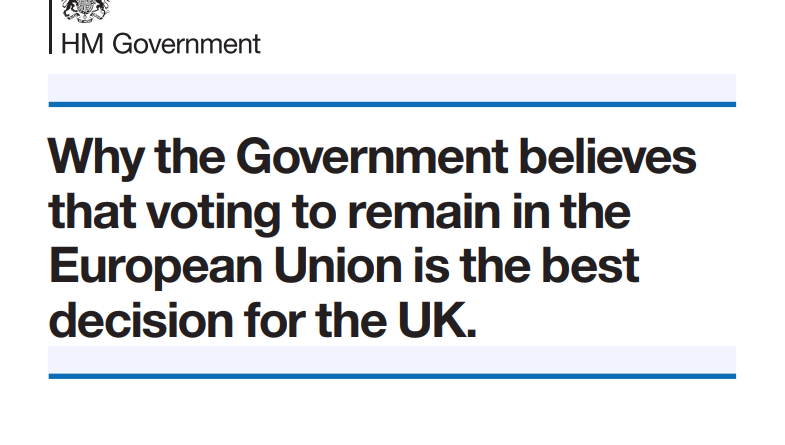Leaving the EU did NOT mean leaving the Single Market
We could stay in the Single Market and still honour the result of the referendum.
I often hear it said that the government EU referendum booklet stated that leaving the EU meant leaving the Single Market.
It says no such thing! In fact it makes it clear that non-EU countries are in the Single Market They have access, abide by freedom of movement and make payments.
One person who made the claim was Paul Nuttall MEP, 30 March 2017.
“People voted to leave the European Union, they knew they were voting to leave the single market… Even in the leaflet that the government sent to every single household at the cost of £9 million to the taxpayer, it said quite clearly, leaving the European Union means leaving the single market.”
It didn’t.
The booklet mentions the single market eight times, of which the relevant points are:
- Remaining inside the EU guarantees our full access to its Single Market.
This simply states that remaining means we can be sure of our access to the Single Market.
- The EU’s Single Market has over 500 million customers and an economy over five times bigger than the UK’s.
A statement of the size.
- The Single Market makes it easier and cheaper for UK companies to sell their products outside the UK, creating jobs as a result.
A statement of its benefits.
- Losing our full access to the EU’s Single Market would make exporting to Europe harder and increase costs.
This points out that if we did leave the Single Market there would be negative consequences. It raises the possibility of leaving the Single Market, but does not state that leaving the Single Market is a necessary consequence of leaving the EU.
- No other country has managed to secure significant access to the Single Market, without having to: • follow EU rules over which they have no real say • pay into the EU • accept EU citizens living and working in their country.
This implies that if a country were not in the EU, but had access to the Single Market it would have to follow EU rules. In other words, that a country can be in the Single Market, but not in the EU.
- But in return for the economic benefits of access to the EU’s Single Market, non-EU countries – such as Norway – have had to accept the right of all EU citizens to live and work in their country.
Here it is made even more clear that a country (e.g. Norway) can be in the Single Market, but not in the EU.
The booklet certainly suffers from a lack of clarity, but does not state that leaving the EU necessarily means leaving the Single Market.
For more of a clue on the intentions of the Tories regarding the EU and single market we can look at the Conservative Manifesto for the 2015 general election. This promised the EU referendum, but also states “We are clear about what we want from Europe. We say: yes to the Single Market.”, p72.
Though David Cameron certainly didn’t help things with some of his comments. On the 6th June 2016, two weeks before the referendum, he said that he would pull the UK out of the Single Market if there was a vote to leave the European Union. However, this sounds more like a threat rather than a necessity, as the same article also makes it clear that MPs would have the power to vote to keep the UK in the Single Market even though there was a vote to leave the EU.
Leaving the Single Market is not a necessary consequence of leaving the EU. We could stay in the Single Market and still honour the result of the referendum.

